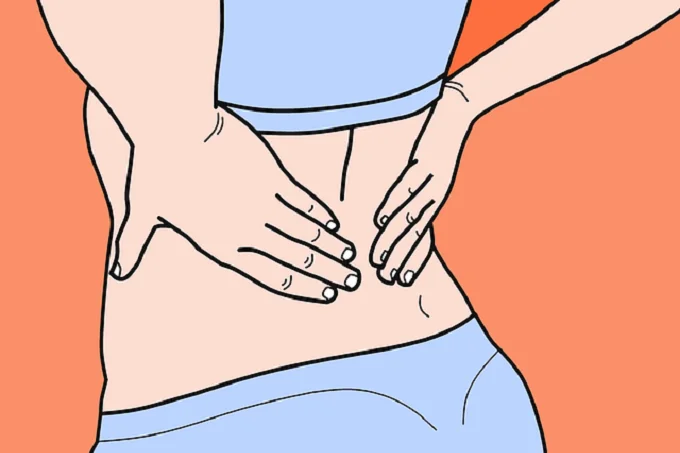My whole body aches and I feel weak: 7 causes and what to do

Muscle aches can be overcome when getting out of bed, ruining the mood. Strange sensations in the legs, as if the calves are twisted before going to bed, will make a person have insomnia. Here are 7 possible causes of body aches.
7 causes of body aches and what to do about it
Vitamin deficiency
People deficient in iron, potassium, and magnesium often report body aches and strange sensations in the calves and thighs that cause them to shift position during sleep constantly. The latter condition is called restless legs syndrome.
The listed trace elements affect the functioning of the nervous system, the transport of nutrients in the body, and the condition of the bones. With a lack of them, a person feels tingling in the body; aches suffer from digestive system disorders. If the problem is not identified in time, there is a risk of encountering iron deficiency anemia, heart problems, depression.
The lack of trace elements and vitamins will help identify and eliminate the doctor by prescribing a course of necessary substances or a specialized diet.
Pregnancy
Pregnancy puts a heavy strain on the legs: the woman’s weight increases by at least 5 kilos. In addition, the body swells up more quickly, but it takes longer for the moisture to dissipate.
During the period of bearing a child, part of the body’s nutrients is spent on the fetus’s needs. Because of this, a woman can notice body aches and pains in the legs and even the appearance of caries or a sharp increase in hair loss.
Apart from timely visits to the doctor and taking prescribed supplements, pregnant women should also wear compression garments. Of course, it won’t do away with aching legs forever, but it will certainly ease the pain.
Overtraining
Excessive physical activity means that the muscles are straining and acidifying – they are filled with lactic acid. Because of this, a person may experience pulling pains (especially when trying to move), burning. If he trains according to the correct technique or doses rest and work, the discomfort goes away after a couple of days.
It also happens that an athlete is exercising at the limit of his capabilities. In this case, it is not micro-tears of the muscles that are possible, but serious injuries, because of which the pain can last a week, if not more. If this happens, you should immediately consult a doctor.
Viral or bacterial infections
Usually, during a coronavirus, influenza, or sore throat, a person develops a fever as the body fights the threat. This causes fever, muscle aches, and bone aches.
Until the disease recedes, it is worth fighting it with the remedies prescribed by the doctor. If a person is in pain and has a fever, they can take NSAIDs and fever-reducing medication. The main thing is to check they are compatible with other medicines before using them.
Peripheral neuropathy
This damages the peripheral nervous system, which allows us to move, feel, touch, breathe. One of the first signs of a malfunction is slight numbness or tingling in the body. Discomfort usually affects the arms or legs.
Peripheral neuropathy manifests itself in cancer and subsequent chemotherapy, alcohol abuse, diabetes mellitus. It is worth giving up bad habits to alleviate her condition, paying special attention to healthy eating, light gymnastics.
Sprain
Let’s make a reservation that this reason is more relevant for the legs or arms. A person first feels acute pain with this injury, which is sometimes transmitted to the entire limb. Movements of the affected part of the body and support are difficult, aching sensations appear, and the area around the joint swells greatly.
Usually, sprains occur due to careless and sudden movements – jumps with an unsuccessful landing, hitting obstacles with all their might. For example, one of the most common injuries in this group is an ankle ligament injury.
Recovery can take from 2 weeks to several months – it all depends on how carefully the doctor’s recommendations are followed. Sometimes sprains are accompanied by cracks or bone fractures – therefore, with the slightest damage, you should not postpone a visit to a traumatologist.
Immediately after the injury, you should apply a cold compress to the affected area of the leg, remove your shoes, and fix the limb with an elastic bandage, using an eight-shaped bandage that goes through the foot and lower leg. And heparin-based gels will remove edema and accelerate the recovery of ligaments.
Also, during the recovery period, it is not recommended to strain the diseased part of the body, take hot baths and wear too-tight shoes. After 1-1.5 weeks, when the pain is gone, you can begin to stretch your leg – this will help get rid of the discomfort.
Sometimes people with sprains feel that their ligaments are pulled to the limit. In this case, they need to be developed gradually. When you have fully recovered your leg, try to walk at least 5 thousand steps every day. Then try walking 10,000 steps. If you can exercise, switch to intensive walking and body stretching
Water imbalance
With insufficient water intake, sharp muscle pains can occur. They are usually experienced by the elderly. A factor that increases discomfort is rheumatoid arthritis. The fact is that water serves as a source of electrolytes, which people especially need over 60 and patients with autoimmune diseases. By the way, arthritis also affects the appearance of pain in the body.
Spasms and cramps in the body usually go away on their own as soon as the person drinks water. If they occur too often, you need to visit a doctor.




